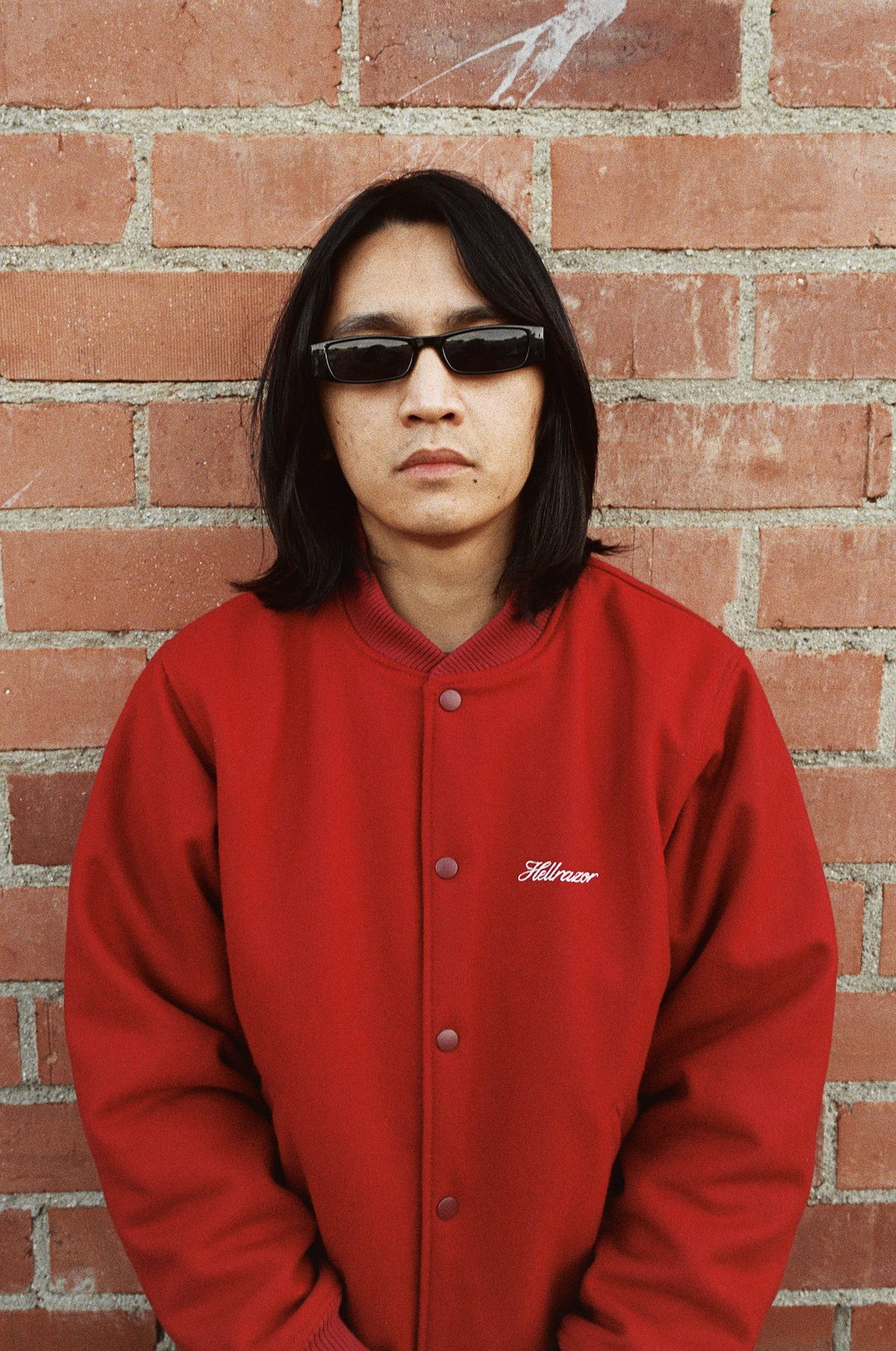“I’ve seen, like, Drew Barrymore and Paris Hilton post my shit on TikTok,” says Idris Vicuña, better known as Eyedress, over the phone from North Hollywood while he’s enjoying lunch at a Mexican seafood restaurant in North Hollywood. “I try to just stay humble, I try not to gas myself up with that stuff.”
More from Spin:
- John Oswald Turns the Grateful Dead’s ‘Dark Star’ into a Black Hole
- Ben Nichols Leans Into Poetry and His Arkansas Past On New Solo Record
- Talking Heads Reissue Campaign Offers More Versions of ‘More Songs About Buildings and Food’
Vicuña has been releasing lackadaisical psychedelic pop and garage rock with occasional detours into underground hip-hop since 2013, on independent labels like Lex Records and XL Recordings. After the quirky homemade music he made with a laptop and FL Studio started going viral, Vicuña found himself with a gold album and three platinum singles, and signed to RCA Records in 2023.
The seventh Eyedress album Stoner was released in April, the same day he made his second appearance at Coachella. The album doesn’t sound like a departure from his lo-fi early work, and still has a hazy ambiance and a playful genre-blending aesthetic. But it was Vicuña’s first time working on an album for more than a year in professional studios with industry producers including Malay (Frank Ocean, Lorde) and Zach Fogarty (A$AP Rocky, Foushee). “We just started using more expensive stuff, but essentially the spirit’s still the same,” Eyedress says. “It just felt like we were jamming, really. I would just view them as a collaborator, like I’ll play guitar, you play bass, or the drums. That’s how I view everyone I work with, I’m just like hey, we’re in this together, y’know?”

Vicuña, 35, was born in Manila and has lived most of his life in either the Philippines or California, and currently resides in the San Fernando Valley with his wife and their young son. After playing bass in a punk band as a teenager, Vicuña mostly figured out things for himself as a DIY solo artist, and embraced his entrance into the major label world as a learning opportunity. “What we went through is like an education for me. Getting me to work with these amazing producers, these guys have like Grammys and shit. So for me, I’m like a student,” he says with the same serene, unhurried cadence that he often sings in. “I never went to college or anything, so I felt like I got to go to a good school for a sec.”
One of Vicuña’s celebrity fans is filmmaker Harmony Korine (Spring Breakers, Gummo), who’s become a good friend, and even co-wrote and appeared on three songs on Stoner, including the frenzied and heavily distorted one-minute track “Dragon Meat.” “He was like, ‘You and your family should come stay with us in our house in Miami.’ So one day we just flew out there and hung out for like a week and did really wholesome stuff, have our kids hang out, nothing crazy,” Vicuña recalls. “He’s pretty lit, too. We went to one of his film premieres one time in a strip club, he’s not like a goodie goodie.”
Stoner has a few other big names, but most of the collaborations on the album came about organically rather than from RCA pairing Vicuña up with stars. “The Harmony stuff, they didn’t set that up, and I worked with the Marias and Mac DeMarco, that wasn’t anything through RCA, these people are just my friends,” he says.
Vicuña has also gotten to know one of the most successful Filipino-American musicians of all time, Chad Hugo of N.E.R.D. and the Neptunes, who appeared on both Stoner and 2022’s Full Time Lover. They first had dinner together early in Vicuña’s career, but wouldn’t start collaborating on music until much later. “I was 22, I feel like he was not impressed, funnily enough,” Vicuña says with a chuckle. “And then 10 years later, he like hits me up, and he’s like, ‘Hey man, my son’s a big fan of your music.’”
The Stoner standout “The Big City” came together over a few months after Vicuña and Hugo’s initial Silver Lake studio session to make the backing track, which became another learning experience. “I remember I sent him a whole other song to that instrumental, and he was like, ‘I don’t think this is the one.’ And I had a little ego conflict, I was like ‘Am I right or is he right?’” Given that Hugo’s ear has helped guide countless stars like Snoop Dogg and Justin Timberlake to enormous hit singles, Vicuña decided to take his criticism seriously, scrapping the AutoTune-heavy vocal he’d originally recorded and writing something more in line with his early work. “I tried to take myself out of it, and I was like, ‘Maybe he’s right, and I gotta respect that he knows more than me.’ And he was right, he was definitely right.”
Even as Vicuña’s budgets and ambitions grow, however, he knows not to overthink his creative process. The fast, dark 2019 post-punk track “Jealous,” turned out to be his biggest hit, and was certified triple platinum last year. “When I made ‘Jealous,’ I feel like I was going through hell. That was a shitty time for me, it was the doldrums. It’s hard to exist sometimes,” he remembers. “It’s crazy how that one connected, especially, like, young kids were playing it. I was like, ‘You guys feel this way? I did not feel that way when I was young.’”
The unpredictability of Vicuña’s commercial success has, fortunately, granted him a unique sort of freedom to keep experimenting and letting listeners tell him what resonates. “I’m just super grateful, y’know? A lot of good things have come my way because of the music, so I’ve just been trying to stay out of the way and keep making good music.”
To see our running list of the top 100 greatest rock stars of all time, click here.



